SKOWHEGAN — For years, Heather Kerner has used local grains from the grist mill in school-based programming in the Messalonskee school district, and now she has launched her own business that incorporates that work with what she has learned from mentors and through an agency that aids women who seek to be entrepreneurs.
An occupational therapist with 23 years’ experience and a longtime volunteer at the annual Kneading Conference, Kerner consulted her twin sister, Amber Lambke, CEO and co-founder of Maine Grains, for help to combine her professional work with the growing trend toward local sourcing to produce local food.
The two began discussing Kerner’s business idea about two years ago. At the beginning of 2020, the opportunity to take entrepreneur courses became available and the idea began to become a reality.
By the end of the summer, The Good Crust came to fruition, creating a product with ingredients sourced completely from Maine Grains. On Sept. 14, production began.

Heather Kerner of The Good Crust works to produce 16-ounce dough balls Monday in the kitchen of the Miller’s Table Restaurant at 42 Court St. in downtown Skowhegan. Rich Abrahamson/Morning Sentinel Buy this Photo
Housed at the former Somerset County Jail at 42 Court St., Kerner’s business — and the addition of a full-time, in-house baker — has allowed The Miller’s Table at Maine Grains to expand its offerings. As part of her goal when launching the dough company this summer, Kerner uses ingredients that are 100% Maine Grains.
“That’s the really special thing about this dough, and it’s something that no one has done commercially,” Kerner said. “It is 100% Maine Grains products, which does require a little bit of technical experience and experimentation. One part of my mission is to use Maine agricultural products that directly support farmers and millers.”
The social mission, she added, is to assist and train vulnerable populations to enter the workforce. In collaboration with community rehabilitation providers, dough operations are used to provide work-based learning experiences and job skills training.
Some of the key programs Kerner directs within Regional School Unit 18 are life skills and vocational training groups, mostly for students at the middle school. Right now, she spends a day and a half each week producing and packaging dough and then spends the rest of the work week at school.
“My whole career I’ve been practicing using something real-life, like food production or woodworking, for the learning of life skills,” Kerner said. “I have the full and generous support of my boss, who is the special education director.”

Ethan Nurick of The Good Crust lifts a portion of a 77-pound batch of dough that was made Monday in the kitchen of the Miller’s Table Restaurant at 42 Court St. in downtown Skowhegan. Nurick helped process the dough into 16-ounce portions. Rich Abrahamson/Morning Sentinel Buy this Photo
Currently, dough production takes place on Mondays, in a shared space with staff at the Miller’s Table. Tuesdays are for dough packing, and Kerner shares the space with clients from the Department of Vocational Rehabilitation, who are learning job skills.
“I duck in when it’s slow for their operations, which is really a model that works for everybody,” Kerner said. “It helps them with their expenses because I pay rent and I come in on a Monday, when it’s a slower day for restaurant and bread making.”
All of the pizza dough used at the Miller’s Table is from Kerner’s business. Since launching in the fall, she has secured the partnership with the restaurant and a recent distribution relationship with Crown O’Maine.
“This new relationship is super exciting because that means that the dough is going to go from Skowhegan north to Presque Isle and south to Boston and stopping at all of the health food stores and restaurants along the way. That’s huge and that represents a big step in terms of growth and potential.” Kerner said.
STARTING UP
The major expense needed to begin production was for a dough divider, which handles 11 pounds of dough per batch. Each ball is separated, rounded and glossed with olive oil.

Ethan Nurick of The Good Crust uses a machine to prepare uniformly shaped 16-ounce dough balls Monday in Skowhegan. The dough balls, which are made into pizza crusts, are produced in the kitchen of the Miller’s Table Restaurant at 42 Court St. in downtown Skowhegan. Rich Abrahamson/Morning Sentinel Buy this Photo
The divider cost $9,000. Main Street Skowhegan provided a $500 Technical Assistant Grant; $800 came from Maine Grain Alliance; an anonymous donor partnered up with Skowhegan Economic Development Corp. and gave $5,000; and Kerner won $1,000 in a pitch contest. In total, she raised $7,300 throughout the summer and, with a personal investment, purchased the dough divider and rounder machine.
“Heather’s project is a great idea of the entrepreneur spirit that is growing in the Skowhegan area,” said Jeff Hewett, director of Economic and Community Development for the town of Skowhegan. “Both the SEDC and anonymous donor felt that The Good Crust was a great project.”
With the space, time and resources available in the kitchen at the Miller’s Table, Kerner has access to a 60-quart Hobart mixer, where she is averaging about four batches of dough with the capacity to do up to five batches. The mixer produces 77 pounds of dough, which are separated into 77 individual, 16-ounce balls of dough.
Coming up with a mixture of ingredients was an eight-month-long experimentation process, in which Kerner tested different recipes and quantities and dough behavior.
As her business continues to grow, Kerner’s next challenge is to figure out how to scale up production using a bigger mixer. The mixer that she’s looking at holds 180 quarts and will allow her to produce about 210 dough balls in one batch. To purchase the mixer, bowl dolly and hydraulic bowl lifter, she needs to come up with about $87,000.
Since her business has only been operating for a few months, finding loans to cover the cost without a year’s worth of sales will be a challenge, so Kerner will continue to seek grant funding.
ENTREPRENEUR COURSE
Kerner took courses through CEI Women’s Business Center, which has offices throughout the state and offers a variety of courses for entrepreneurs, including Propeller courses designed for women of all backgrounds to help build their businesses while addressing barriers that disproportionately affect female business owners, particularly in the tech field. Kerner spent the spring and summer taking two different courses with the goal to start dough production after Labor Day.
“That was really an experience that allowed me to make measured progress over time and really lead you on a fast track to starting,” Kerner said. “There is so much support in Maine for entrepreneurs.”

Ethan Nurick of The Good Crust lifts trays containing 16-ounce dough balls Monday while placing items in a refrigerator cooler outside the kitchen at Miller’s Table Restaurant in Skowhegan. Nurick helps process the dough, which begins as a 77-pound ball, into 16-ounce portions. Rich Abrahamson/Morning Sentinel Buy this Photo
Upon finishing the Propeller courses, participants are paired with mentors who have experience in their particular field. Some of the mentors, including Kerner’s, are provided by Maine Center for Entrepreneurs. She will also partake in MCE’s Top Gun program this winter, which uses hands-on mentoring in weekly classes.
“Once I made the commitment, the Propeller course was perfect because it mechanically worked through how to get this idea off the ground,” Kerner said. “Working with mentors has been immeasurably helpful.”
Laurie Johnson, program manager at MCE, said that the Top Gun program has more than 200 mentors in their network statewide. They are equipped with a range of experience, either currently working or retired from their specific field.
“What they offer the entrepreneur quite often is an experience sounding board,” Johnson said. “Mentorship can be having someone that’s been there and done that and just repeat back what you said to them in a way that is incredibly helpful. Beyond that, they offer their advice, connections and their skill sets.”

Good Crust dough balls in their packages after being made in the kitchen of the Miller’s Table Restaurant in Skowhegan. Rich Abrahamson/Morning Sentinel Buy this Photo
LAND & FURROW LLC
In October, Lambke announced that she would be leading a new real estate company, Land & Furrow LLC, and had purchased the former Kennebec Valley Inn property in downtown Skowhegan from the Somerset Economic Development Corp.
The plan is to develop a property that will house a slew of enterprises — housing, entrepreneurs looking to grow their business and a home for the farmers market during the winter months, with the potential for much more.
Part of this expansion will include a kitchen space in the building, which will serve as the long-term home of The Good Crust. With a teaching kitchen, Kerner will continue to pursue her mission and hopes to open a retail storefront where she will sell bialy, a roll filled with a garlic and onion mixture.
“My goal, by the time Land & Furrow happens, is to open a small retail storefront using The Good Crust to make hot bialys,” Kerner said. “It will be a visible teaching kitchen to the public, much like a culinary school might show an open kitchen concept where there might be a corner of the kitchen made of glass so people can observe what is going on as they walk in and out.”
For now, her pizza dough can be found at Meridians in Fairfield and The Little Cheese Shop at Balfour Farm in Pittsfield.
Send questions/comments to the editors.


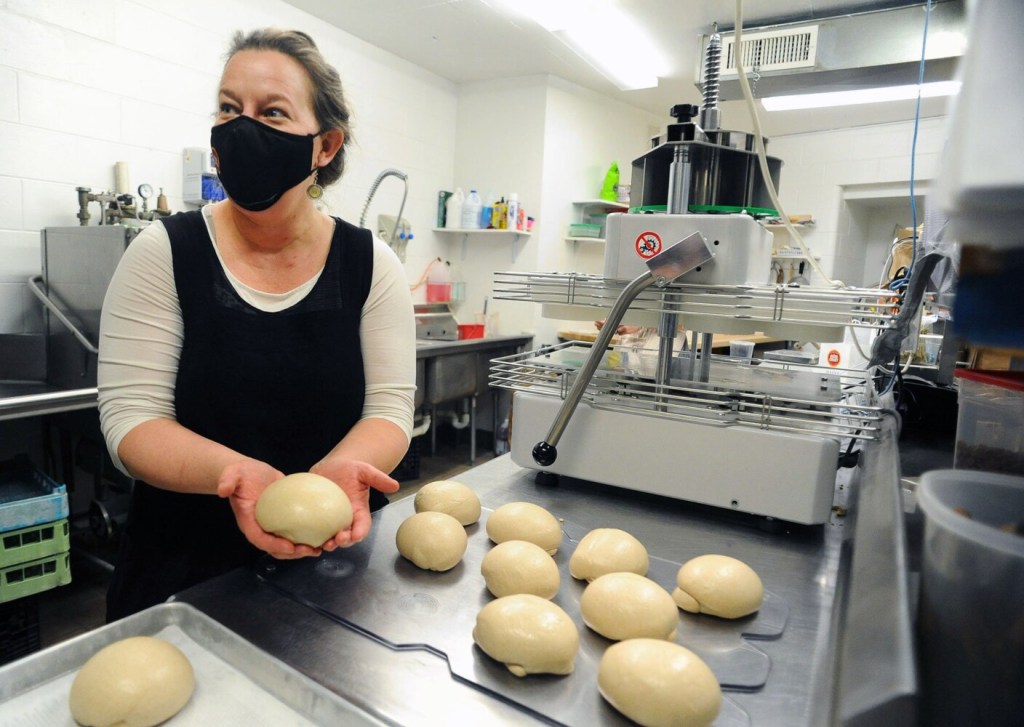
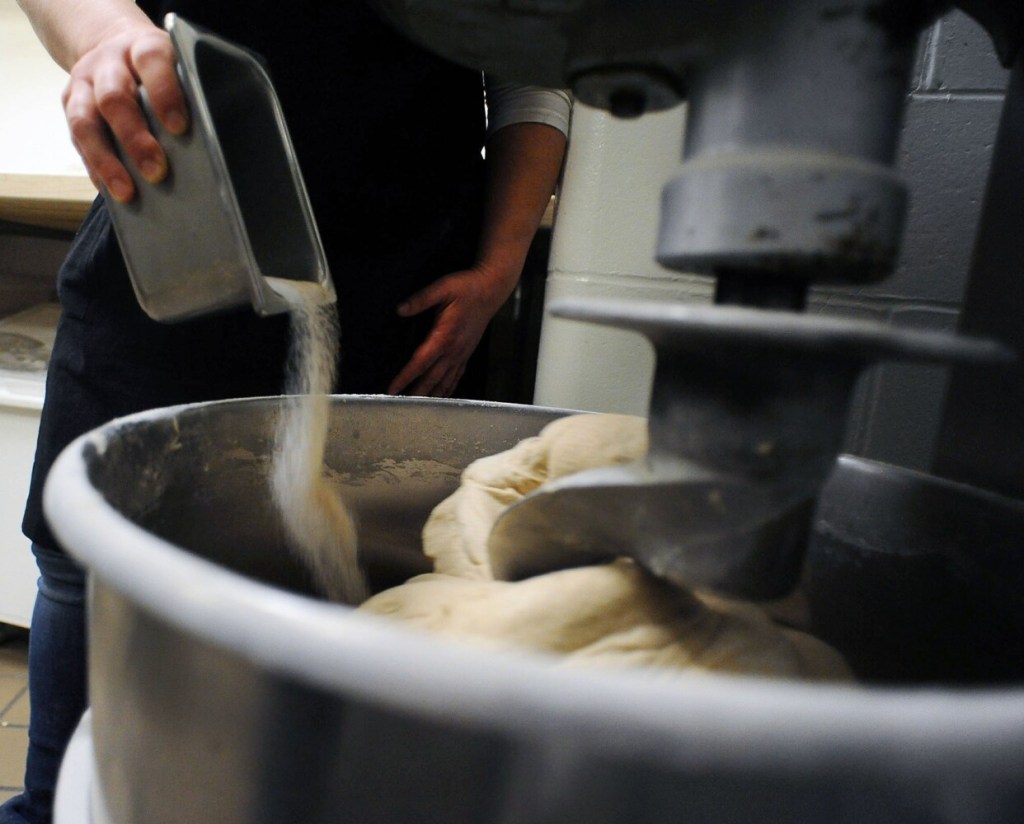
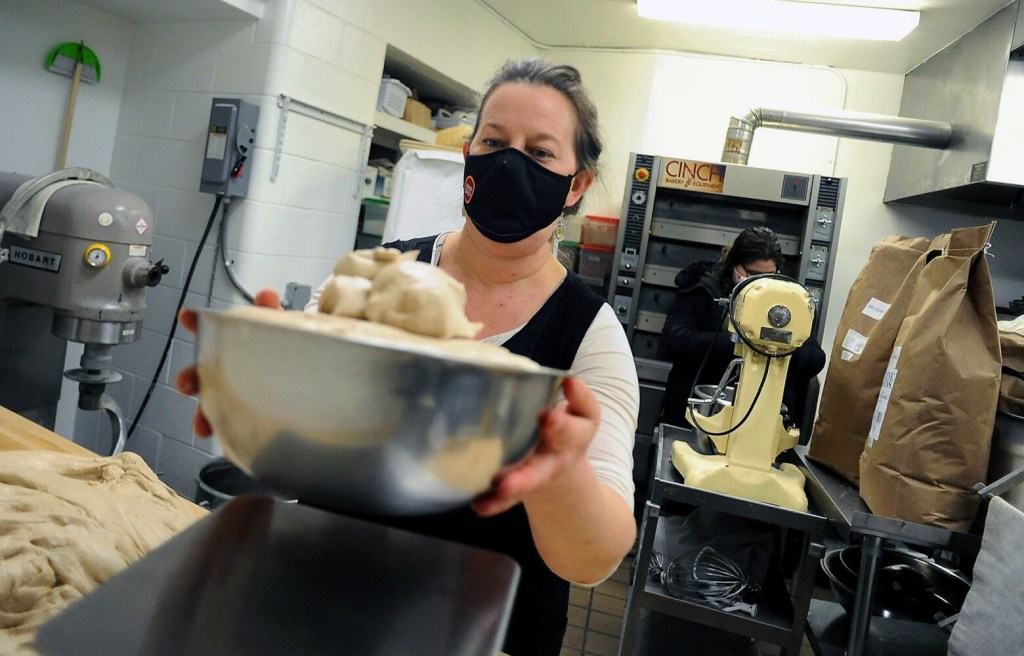
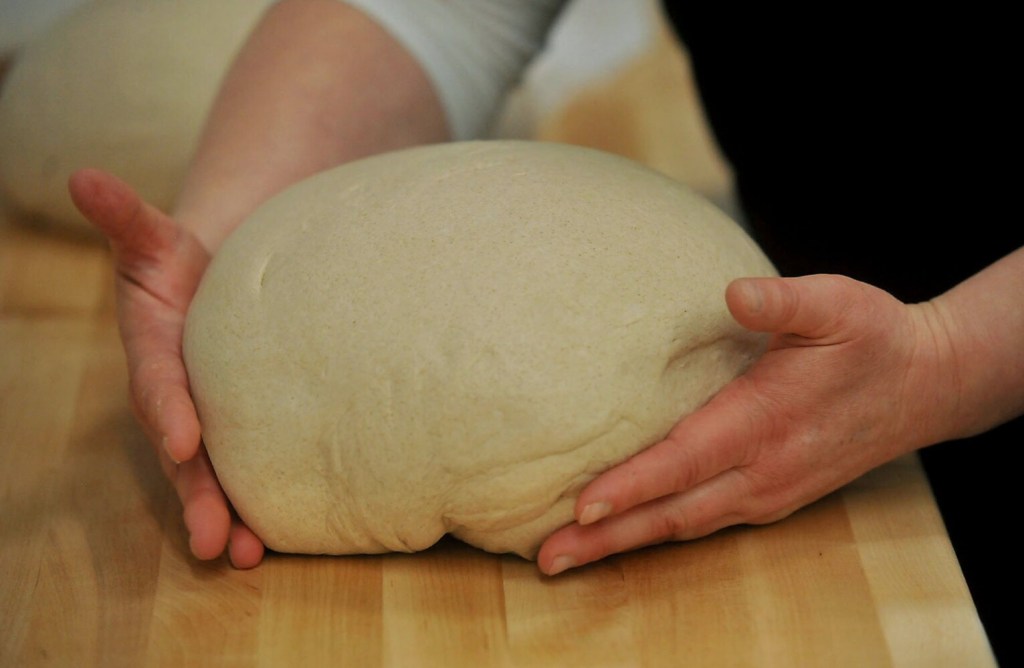
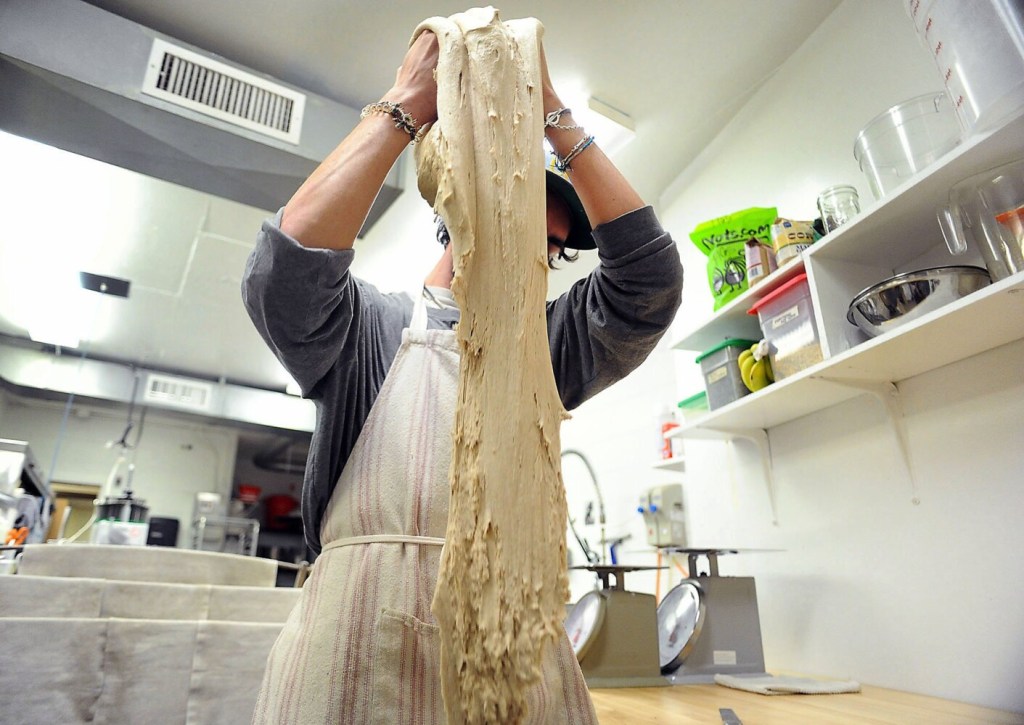
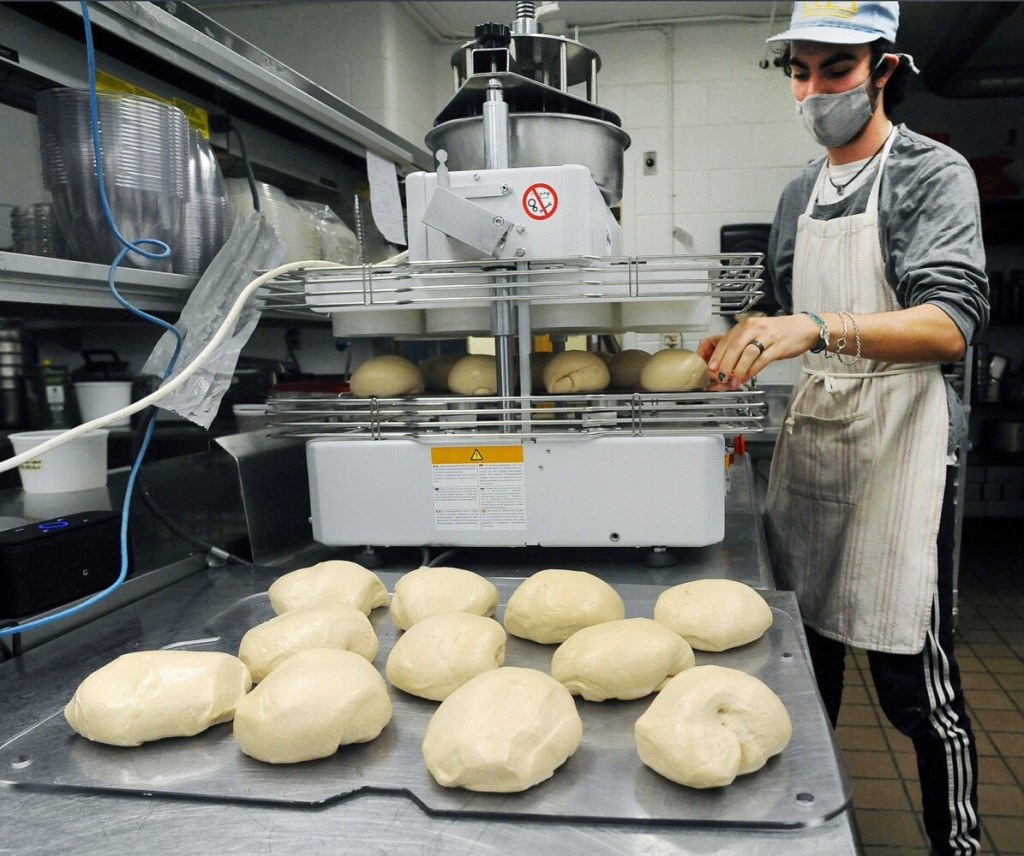
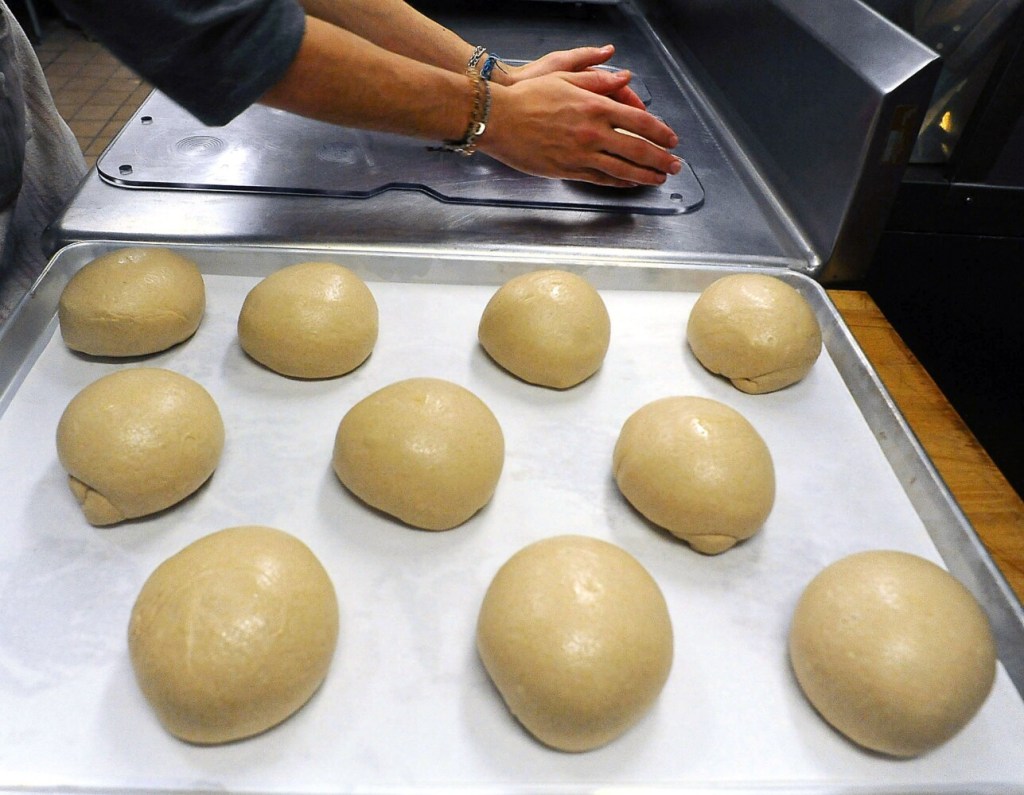



Comments are no longer available on this story